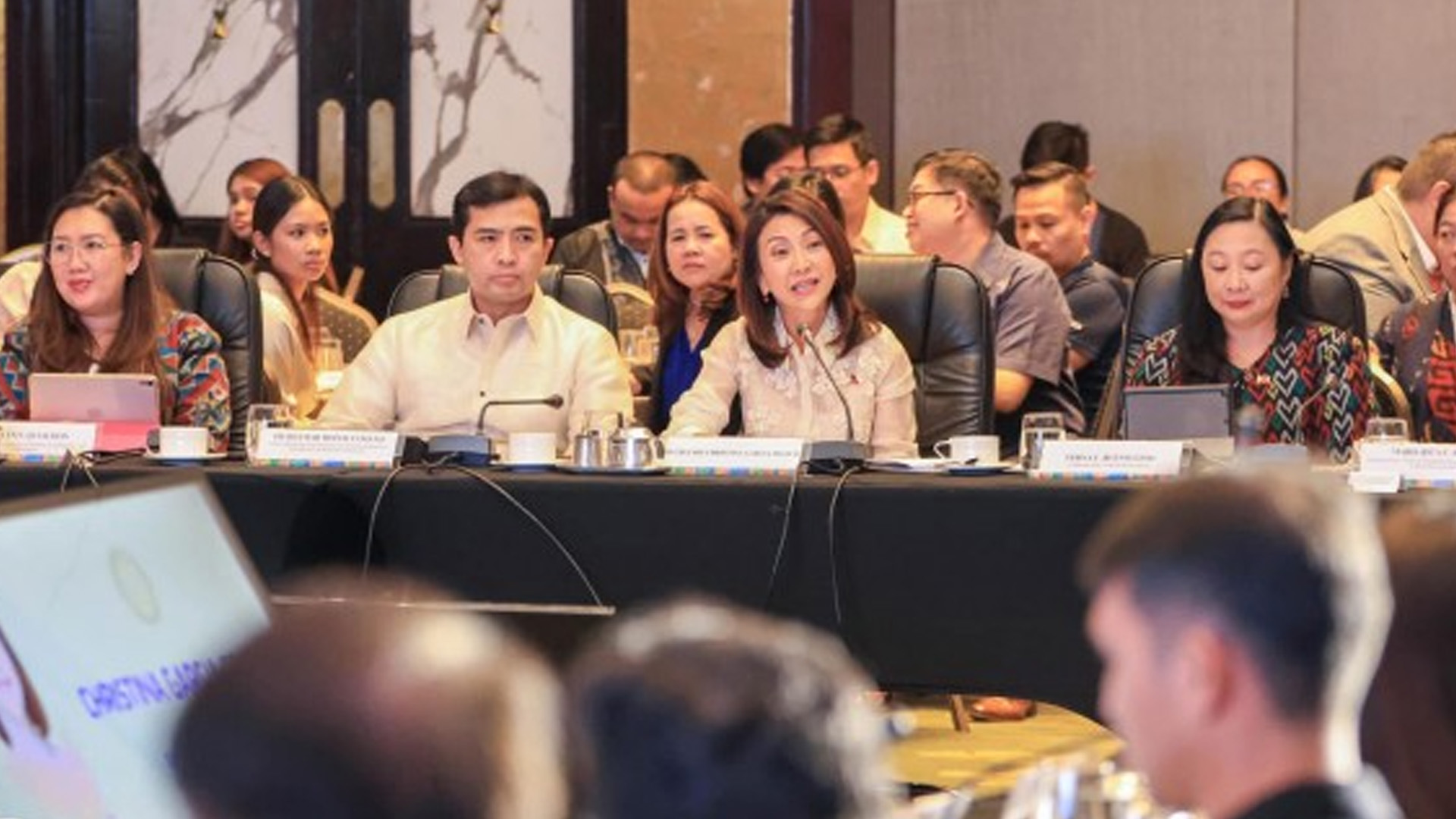The Department of Tourism (DOT) said the government is intensifying efforts to streamline travel processes while addressing key challenges in the Philippine tourism industry.
Tourism Secretary Christina Frasco convened the Tourism Coordinating Council (TCC) on March 18, which highlighted that air connectivity limitations, slow growth in key outbound markets, geopolitical uncertainties, and destination capacity constraints are among the present hurdles that beset the industry.
“To address these challenges, the DOT has intensified efforts to enhance tourism infrastructure and streamline travel processes by fostering strategic partnerships with key government agencies,” the DOT said in a news release Friday.
Despite these challenges, Frasco also noted that the sector is still “thriving” and is one of the top economic development drivers of the country.
“This is evident in the numbers that reflect our collective hard work and commitment in transforming Philippine tourism as a force for good,” she said.
The Department of Foreign Affairs is currently working to enhance the new e-visa system for India, another market the Philippines is shooting to develop.
The DOT is also coordinating closely with various agencies to boost tourism development, including with the Department of Transportation (DOTr) for airport and seaport enhancements; the Department of Information and Communications Technology (DICT) for expanding Internet connectivity in key tourism destinations; the Bureau of Immigration (BI) and the Department of Justice (DOJ) for implementing the Cruise Visa Waiver Program; the Department of Public Works and Highways (DPWH) for developing tourism roads; and the Department of Health (DOH) for establishing Tourist First Aid Facilities to ensure visitor safety and well-being.
The DOT said it recognizes the importance of sustained synergy among government agencies and industry stakeholders and called on all TCC members to actively contribute to the tourism sector’s development.
“Tourism is a representation of our collaborative efforts to pursue sustainable development to uplift the lives of the Filipino people, and therefore, the success of tourism lies in our commitment to the betterment of our beloved country,” Frasco said.
“We cannot move towards this effort of transformation without your invaluable help and contributions to the tourism industry.”
In the same TCC meeting, Philippine Institute for Development Studies (PIDS) senior research fellow John Paolo Rivera highlighted that domestic tourism had been a key stabilizer for Philippine tourism during economic downturns.
He also highlighted the Philippines’ position as the ASEAN leader in tourism receipts per arrival.
Philippine tourism earned an all-time high revenue of PHP760.5 billion in 2024, translating to a 126.75 percent recovery rate from the 2019 pre-pandemic levels.
“The numbers are telling a powerful story of recovery and growth. Leaning from these figures, it highlights not just recovery, but real momentum that we must build upon moving forward by continuously contributing to the achievements of the NTDP’s (National Tourism Development Plan) seven strategic objectives,” Rivera said.
He said there is a need for regional competitiveness through sustainability initiatives in major destinations, such as Boracay, Palawan, and Cebu, while promoting emerging locations for inclusive economic growth.
He also recommended enhanced visa facilitation, expanded flight routes, and maximizing secondary gateways to sustain key markets, such as South Korea, the United States, and Japan while expanding into new markets like India, the Middle East, and the European Union.
He also pointed out the need for stronger cross-sector collaboration, noting further opportunities for local government implementation, investment promotion, and improved tourism governance.
TCC member agencies include the BI, DICT, DPWH, DOTr, Department of Environment and Natural Resources, DICT, Department of Labor and Employment, Department of the Interior and Local Government, League of Provinces of the Philippines, National Commission for Culture and the Arts, National Commission on Indigenous Peoples, National Historical Commission of the Philippines, Philippine Amusement and Gaming Corp., Philippine National Police, Tourism Congress of the Philippines, and the Union of Local Authorities of the Philippines. (PNA)







